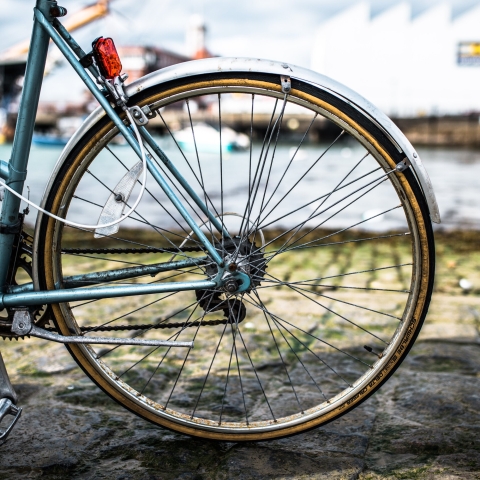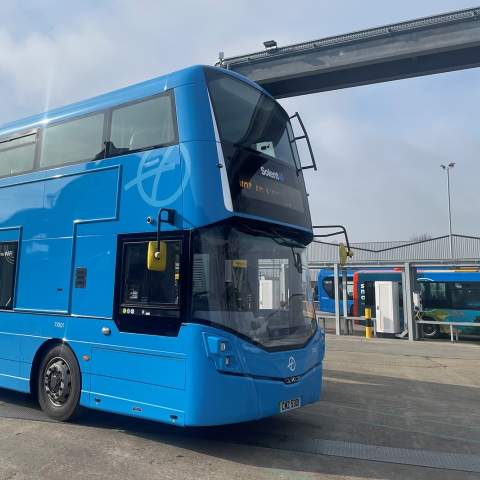
Getting around the University campus
Not sure where to go? If you’re looking for a building, facility or service, you can find the addresses and opening hours of all our buildings on the map below, or download our campus map.
Getting to the University campus
Wherever in the city you live, it's quick and easy to make your way to our campus or get out of the city. You'll have plenty of options, too — from walking or cycling, to catching the University bus.
Local bus services
Portsmouth has excellent city bus services. You can catch local and intercity buses from the main bus station at The Hard Interchange, next to Portsmouth Harbour railway station. There is also a park and ride from the M275 terminal with stops in the centre of the University campus.
Train
Our closest station is Portsmouth and Southsea. It’s a 5-minute walk from the buildings on our Guildhall campus.
There are daily direct trains from London Waterloo and London Victoria (2 hours), and regular services from Southampton, Bournemouth, Chichester and Brighton.
We’re only a 2-hour journey away from Bristol too. You can plan your route with:
Taxi
If you're travelling to Portsmouth from one of the major London airports, taxis are fairly expensive, costing between £100 and £200. For this reason, we don't recommend taking a taxi for your journey. If you do choose to take a taxi, you should book it in advance to get the best offers possible.
Once you arrive in Portsmouth, taxis are common and journeys will generally cost no more than £15 to £20.
Coach
Regular daily direct coach services run to Portsmouth from London, Bristol, Birmingham, Heathrow and other locations around the country.
All these services call at The Hard Interchange by Portsmouth Harbour railway station, which is a 15-minute walk from our Guildhall campus.
Air travel
For London travel — we’re only 1 hour 30 minutes from both Heathrow and Gatwick airports.
Southampton International – which has regular flights to Paris, Cherbourg, the Channel Islands, Belfast, Glasgow and more – is just 30 minutes by car and easy to reach by train too.
Sea
There are daily sailings between Portsmouth and Caen, Le Havre and St Malo in France. There are also twice-weekly services to Bilbao and Santander in Spain, and regular services to Jersey and Guernsey.
There are crossings each day to the Isle of Wight too, by Hovercraft, passenger catamaran, and passenger/car ferry. A passenger ferry also runs across the harbour to Gosport.
Safety on public transport
Public transport is a great way to get around your campus and surrounding areas. When taking a bus, train or ferry, plan ahead to stay safe:
- Plan your route before you set off
- Keep a timetable readily available, on your phone or person
- Stay in a well-lit area if you're waiting at night
- Keep your valuables close to you and secure in a bag, purse or deep in your pockets
- If you can, travel with a friend
- If you're wearing headphones, keep the volume low so you can hear announcements
- Know where you can ask for help – either a driver, guard or emergency phone
- Move to where the driver is, if someone is making you uncomfortable or unsafe, and let them know
- Notify staff if you see something that is suspicious, out of place or unattended
- Time your arrival at a stop or station a couple minutes ahead of the bus or train, so you aren't waiting too long
Planning your journey
Whether you’re looking for information about local cycle routes, walking maps, or links to public transport, you can plan your journey using My Journey Hampshire.
Accessible travel
Blue badge holders can park free of charge in most Portsmouth City Council car parks and most on-street parking spaces.
If you have special requirements, please contact us.
Looking for our London campus?
Looking for our London campus? Find directions for getting around our Walthamstow home here:









